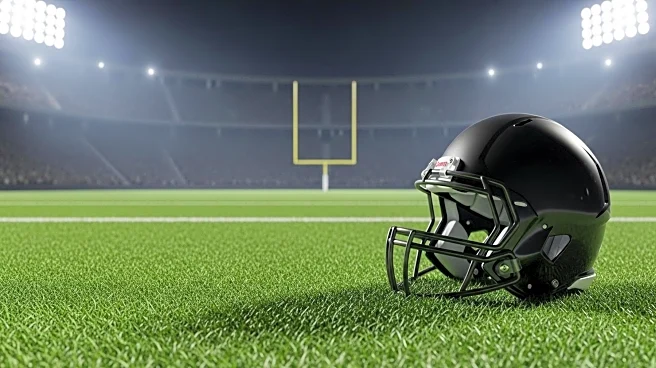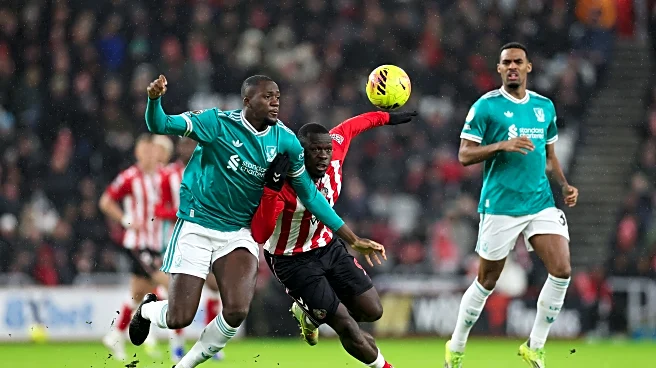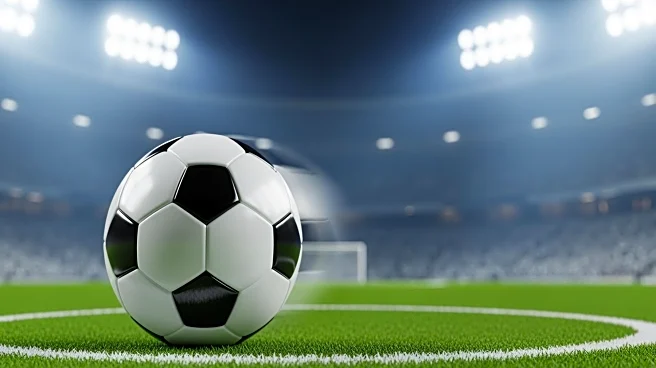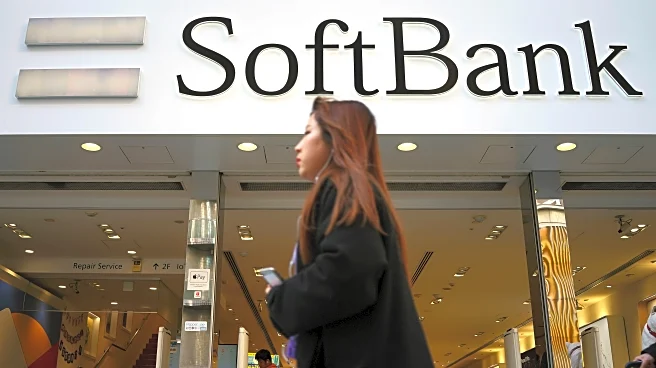What's Happening?
Jalen Carter, a defensive end for the Philadelphia Eagles, has decided not to participate in the upcoming game against the New York Giants, citing concerns over the turf at MetLife Stadium. According to NFL Network's Ian Rapoport, the stadium's playing surface influenced Carter's decision to sit out the NFC East matchup. Carter has been dealing with a heel injury, which was added to his existing shoulder injury, and was listed as a limited participant in the Eagles' injury report. Despite traveling with the team to New Jersey, Carter did not partake in pre-game warmups and was seen conversing with his agent, Drew Rosenhaus, as well as Eagles' head coach Nick Sirianni and general manager Howie Roseman. The turf at MetLife Stadium has been criticized in the past for contributing to player injuries, although league data suggests it is relatively safe compared to other surfaces.
Why It's Important?
The decision by Jalen Carter to sit out the game highlights ongoing concerns about player safety related to artificial turf surfaces in the NFL. MetLife Stadium's turf has been a point of contention, with players and observers noting a history of injuries occurring on the surface. This issue is significant as it affects player health and team performance, potentially influencing league policies on stadium surfaces. The criticism of MetLife's turf by high-profile players like Odell Beckham Jr. underscores the need for discussions on improving turf quality to prevent injuries. The Eagles' decision to rest Carter may also impact their defensive strategy against the Giants, affecting the outcome of the game and the standings in the NFC East.
What's Next?
The ongoing debate about the safety of artificial turf surfaces in the NFL may lead to further scrutiny and potential changes in league policies. Teams and players may push for higher standards or alternative solutions to ensure player safety. The Eagles will need to adjust their defensive lineup in Carter's absence, which could influence their strategy and performance in the game against the Giants. Additionally, the league may consider reviewing injury data and player feedback to address concerns and improve playing conditions across stadiums.
Beyond the Headlines
The issue of turf safety at MetLife Stadium raises broader questions about the balance between player safety and stadium economics. Artificial turf is often chosen for its durability and lower maintenance costs compared to natural grass, but the potential for increased injuries could lead to long-term costs for teams in terms of player health and performance. This situation may prompt discussions on ethical considerations in sports management, focusing on prioritizing player welfare over financial savings.











